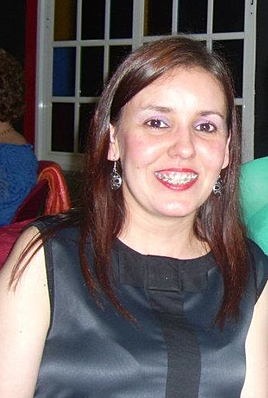Book
Details
- Title: Feng Shui For Writers
- Series: How To Master Your Life
- Author: M.C. Simon
- Genre: Non-Fiction
- Format: Paperback and Kindle
- Length: 152 pages
- Publication Date: June 16, 2015
- Publisher: IML Publishing
- Regular Price: $7.99 Kindle
Synopsis
DISCOVER
HOW TO MASTER YOUR WRITING LIFE
FENG
SHUI FOR WRITERS provides all the dots that you have
to connect to control the flowing Chi for each writing category. What is
harmony for a romantic novel writer is different from what is harmony for a
journalist writer, and for sure very different than for the writer writing for
the horror domain. To bring the Feng Shui technique into the writer's life, it
is not enough to merely explain general principles and ideas; we have to dig
deeper because the branches of writing are so numerous.
Find
Out HOW TO:
- Attract productivity, successful publishing and money using Feng Shui
- Overcome writer's block with Feng Shui help
- Organize your writing place to achieve your goals
- Influence your writing life through colors
- Use crystals for creative writing
- Use lighting to Feng Shui your writing space
- Choose the plants that will boost your creativity
- Influence your "writer's zone" and the creative mind
- Boost your children's creativity (yes… children are young writers also)
And much more.
Buy
Links
Excerpt
6.2 - THE WRITER'S ZONE
To
understand what a writer's zone is, you must first experience the previous
state called a writer's block. Then and only then will you understand how you
can face it and how you can move to the writer's zone. This zone is exactly the
opposite of a writer's block; it is the optimal phase in which a writer can
find himself. It is the phase in which Chi flows freely on the writer's path,
the creativity is boosted and the writing productivity reaches maximum level.
Having
knowledge about both states, a writer's block and a writer's zone, you can save
the wasted time between these two phases.
There
are some elements that influence your entering into this zone.
- One of these is your location. Depending on where you live, you must find a writing environment that boosts your writing mood. Find a place suitable for you that you feel relaxed in and totally prepared to let the words flow.
- Take a walk in the park or the woods, go for a drive on a long unpopulated road. Don't forget to take the camera with you and take pictures that will help you relax the next time you need to enter into the writer's zone without having to walk again. A walk in a quiet and relaxing place is a good Feng Shui method to un-clutter your mind of stress.
- Do some brainstorming for your future book; try to prepare a good plot for your novel. Do some research on the theme that you want to write about.
- Avoid emails, other online temptations, phones and any other distractions that are blocking the Chi flow of your creativity and productivity.
- Listen to some music and prepare a playlist with your favorite relaxing songs. Use this list until it becomes a habit that is helping you enter into the writer's zone.
- Breathe! Yes, breathe. Fill your lungs with fresh air until they expand to the point where they touch, take a small pause then exhale slowly. Learn to breathe again, so the good Chi also enters your body.
- Burn some incense and use aromatic lamps for fragrance.
- Find a writing retreat in your area. Make it a part of your writing process. This will always get you into the zone. There are two kinds of retreats: solo retreats (suitable for writers who prefer solitude far away from any distractions including other writers) and group retreats (provides a chance for face to face group brainstorming). The best writing retreats are those that include both solo and group retreats. When you go to a writing retreat, be sure that you are applying the Feng Shui principles in that place also (you can even take a Bagua map with you).
- If your mind feels unclear in ideas, use a yellow vase where you place orange flowers. This will boost the intensity of your writing and will give you the necessary clarity.
- Don't forget to always include the water element in your space.
- Avoid too many electronic devices in the moments when you write because they will drain your energy, and soon you'll have to face another writer's block.
- Hang a wooden chime near you so its movement will activate any stagnant Chi.
Previously
Published Excerpts
About
the Author
Writer, translator, engineer, researcher, project manager,
blogger, eternal student... these are only a few words to describe MC Simon.
She
strongly believes that energy is ours to use freely, and we need only to open
our hearts to regain the lost perception of our true powers. She thinks that
when the student is ready, the teacher appears. For this reason, M.C. Simon has
never hunted the information but rather waited for the right moment when she
would be ready for the information to find her. In the same way, she knows that
when someone needs her, the Universe will proceed in such a way that the
meeting will take place.
Contact
The Author
Giveaway
Giving
away a copy of "Feng Shui For Writers" E-book to 10 lucky winners. :)








